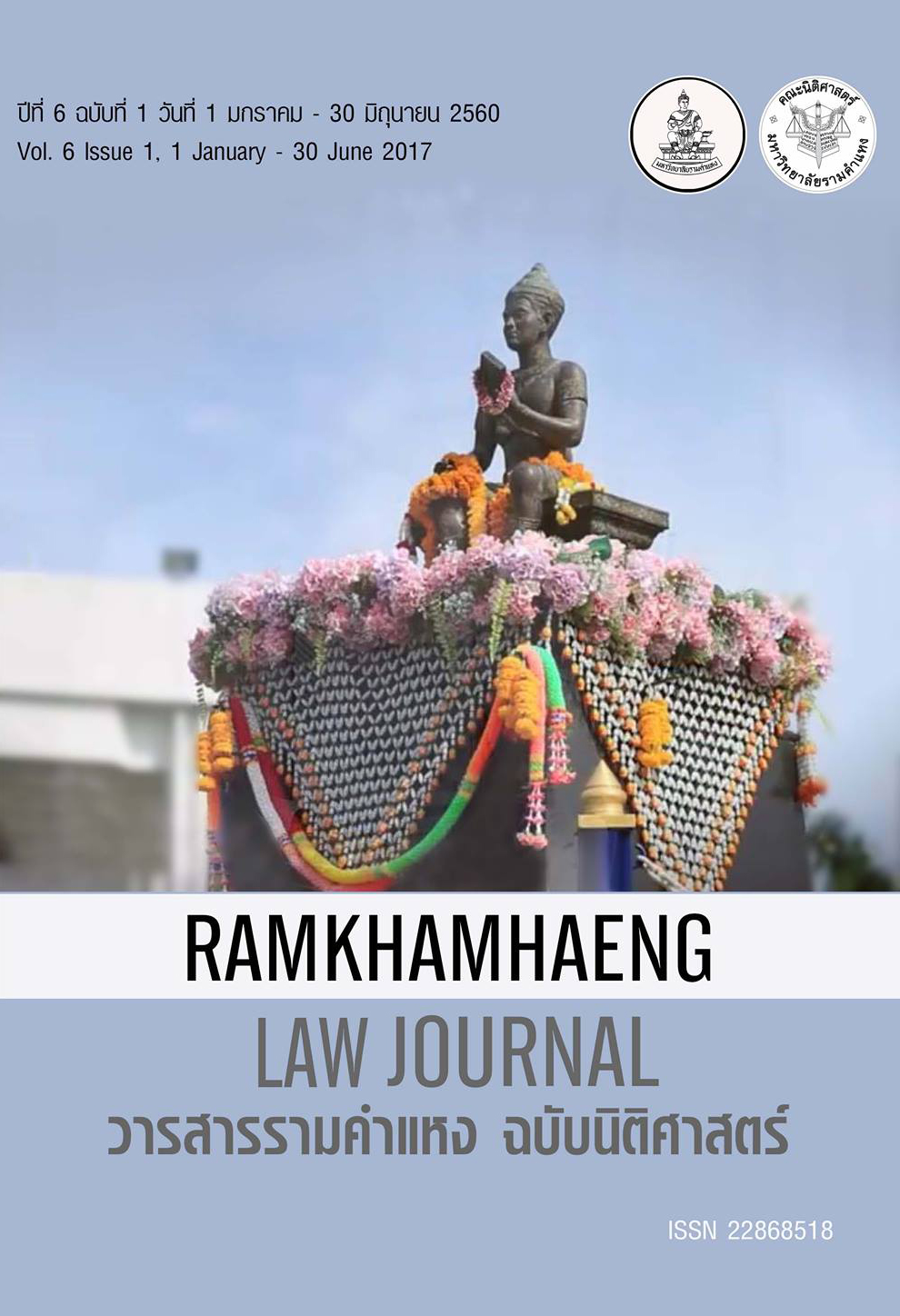Third Party Funding under Investor-State Arbitration: Respondent State’s Risks and Recent Developments in ASEAN and Hong Kong
Main Article Content
Abstract
การระดมทุนของบุคคลภายนอกสัญญา (TPF) ในกระบวนการอนุญาโตตุลาการระหว่างรัฐและนักลงทุนเอกชน สามารถแก้ไขปัญหาทางการเงินของผู้ลงทุนได้ ทั้งในส่วนของความเท่าเทียมกับรัฐผู้ถูกร้อง และโอกาสในการเข้าถึงกระบวนการยุติธรรม การที่กระบวนการอนุญาโตตุลาการระหว่างประเทศไม่มีหลักการเกี่ยวกับข้อตกลงเงินทุนของบุคคลภายนอกสัญญา เนื่องจากข้อตกลงดังกล่าวไม่อยู่ภายใต้สัญญาอนุญาโตตุลาการ อันนำมาสู่ปัญหาในกระบวนการอนุญาโตตุลาการของรัฐและผู้ลงทุนได้ โดยอาจทำให้เกิดความเสี่ยงที่สำคัญเกี่ยวกับรัฐผู้ถูกร้อง เช่น ความอิสระและความเป็นธรรมของผู้ที่ทำหน้าที่อนุญาโตตุลาการ ความมั่นคงของค่าใช้จ่ายและการจัดสรรเงินทุนต่าง ๆ ดังนั้นการสนับสนุนและการพัฒนาให้มีการระดมทุนของบุคคลภายนอกสัญญา โดยใช้ประโยชน์จากข้อดี และการหลีกเลี่ยงความไม่แน่นอนและข้อเสียต่าง ๆ จึงมีความสำคัญเป็นอย่างยิ่ง ดังจะเห็นได้จากในปัจจุบันกลุ่มประเทศอาเซียนและฮ่องกง ได้เริ่มมีการปฏิรูปเกี่ยวกับหลักการดังกล่าวแล้ว ตัวอย่างเช่น การแก้ไขกฎหมาย การแก้ไขหลักการอนุญาโตตุลาการ และการปรับข้อตกลงการค้าเสรี เพื่อให้กฎระเบียบเกี่ยวกับการระดมทุนของบุคคลภายนอกสัญญาครอบคลุมและมีประสิทธิภาพมากยิ่งขึ้น แต่ด้วยเหตุที่แต่ละประเทศมีเขตอำนาจและสถาบันอนุญาโตตุลาการที่แตกต่างกัน ตลอดจนกลยุทธ์ของรัฐผู้ถูกร้องก็อาจแตกต่างกันออกไป จึงอาจส่งผลกระทบต่อการลดความเสี่ยงที่อาจเกิดขึ้นจากการระดมทุนของบุคคลภายนอกสัญญาได้
The existence of Third Party Funding (“TPF”) in investor-state arbitration could resolve the financial concern for investors, which provides them a more equivalent position with respect to respondent states and a chance to access to justice. International arbitral tribunals have in principle no competence to address TPF agreement because such agreement is disconnected from arbitration agreement. Due to this disconnection, the involvement of TPF in investor-state arbitration could bring vital risks to respondent states, such as the risk on independence and impartiality of arbitrators, the risk on security for costs, and the risk on allocation of cost. It is important to support the development of TPF and take advantage of its benefits, while at the same time regulate what is necessary to avoid uncertainties and limit its dangers. Recently, ASEAN countries and Hong Kong have started aseries of reforms, for instance, modification of the current laws, reversion of the arbitration rules, as well as adaptation the new generation Free Trade Agreement, to tackle the need for a more comprehensive and effective regulation of TPF in arbitrations. But due to the different approaches chosen by different jurisdictions and arbitration institutions, strategies adopted by respondent states might have a great impact to mitigate these potential risks brought by the involvement of TPF.
